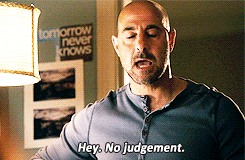
This post was written by an external contributor. Daisy explains how everyone can get more involved in supporting equality within their workplace.
The workplace environment has changed quite a bit over the last couple of decades in terms of the technology we use, the jobs we’re doing and the diversity around us. And by diversity we mean people of varying genders, ethnicities, sexual orientations, abilities and nationalities all working together in the same space. Equality, on the other hand, is the idea that all these people are treated the same way.
In recent years, diversity has become more common, but equality hasn’t necessarily followed suit. Companies and employers should be putting more effort into making the workplace environment diverse and equal, but here are some ways you can help support those efforts.
Educate yourself

What are the current problems with equality in the workplace? We’ve been hearing more and more about diversity in recent years, and there have been lots of successes – but there are still battles left to be won. The best way you can help progress is to stay informed.
Did you know that in the UK in 2015 women were being paid approximately 80% of men’s hourly wages for the same work? Even though bills have been passed by the government on this issue, it is yet to be solved.
There are unheard voices on this subject that need to be heard, but you don’t have to go scrolling through the news and statistics websites to find them; sitting down and listening to the people you work with is a good place to start.
Question your judgements
Sometimes we need to think about the way we look at the world before we can start to change it. As we grow up, ideas are internalised and it can be a battle to re-learn things. This is often influenced by factors like gender or ethnicity, but the idea is flawed.

We often expect certain things from people because of a characteristic or their background. If we start consciously taking steps to correct these assumptions, we can start to open up opportunities to new people and learn from them as well. We all must acknowledge these toxic social norms before we can move on from them.
It’s also important to question how you’re approaching your own career goals: are you selling yourself short because of something you’ve been led to believe about yourself? Maybe it’s time to step out of that societal expectation and support equality for yourself as well as others.
Talk to those at the top
You might be thinking, “I’m well informed and well-intentioned towards my peers but there isn’t a whole lot I can do about it. I don’t have the power.” Well, maybe you don’t make executive decisions, but the people who do should be more than just figureheads.
Just as you might go to the head of the course at university if you identify a problem, you can go to your manager and those even higher up to talk about these things. Even just bringing inequality to their attention as an issue people are keen to discuss can work wonders for moving your agenda forward.
Don’t tolerate abuse

But, even if all these things already exist – which they do in a lot of industries and communities – it doesn’t mean the job is done. As it came directly into the public’s eye in 2017, the #MeToo movement has shown that abuse of power is not an uncommon thing.
If you see prejudice or discrimination happening around you, you have the power to do something about it, even if that’s reporting it to a manager. Workplaces are legally obliged to have discrimination and equality policies in place, but staff are all responsible for making sure people adhere to them.
Support other activists
In the age of social media, one quick click can bring a tweet, article, comment or video into the public eye in a matter of seconds. Supporting external activists that are standing up for equality and diversity can be one of the most powerful things you can do.
You can add yourself to the mailing list for organisations that are making a solid difference out in the world. As cynical as we might be about our voices being worthwhile, a little encouragement added to a massive following can – and does – get heard.
Finally, there’s something to be said for supporting other people in your workplace and in your own life. Stepping outside of social expectations can be terrifying, and any first encounter with the workplace likewise. Giving people encouragement to go for what they want goes a long way.
Download Debut and connect with us on Facebook, Twitter, and L


